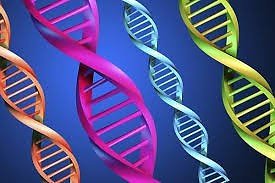Clear Genetics Advice and Access to Genetics Testing & Counselling
In a complex world of clinical genetics, whole genome sequencing (WGS) testing and complex medico-legal questions , we provide an expert and considerate person focused and accessible service, tailored to you. Clear and reliable information and genomics advice that is sensitively provided. Informed consent for genomic testing is essential alongside appropriate pre- and post-test counselling by an experienced Consultant Clinical Geneticist and counsellor based in Manchester. Expert guidance over the health benefits and possible risks of genetic testing and whole genome sequencing (WGS) in clinical and medicolegal reports is provided.
Genes are tiny 'packages' of information made from DNA. Each person has about 20,000 genes, which are the genetic instructions for how the baby forms and develops. Each gene is a separate genetic instruction that can determine such things as what blood group we are, the colour of our eyes, how many fingers and toes we have and how tall we might grow to.
Genes are so small that they cannot be seen, even under a powerful microscope. They are arranged along the chromosomes little beads on a string. These strands are called chromosomes, and are all the cells of our body. Every cell in a person's body contains 23 pairs of chromosomes (46 in total), which can be seen down the microscope. To help differentiate between chromosomes, each pair has been given a number. The largest chromosomes are numbered one, the second largest pair are number two, and so on right down to the chromosome pair number 22 which are the smallest. The remaining pair (X and Y) are called the sex chromosomes and it is the presence of the Y chromosome that determines what sex a person is. People with changes in their genes or in the number or structure of their chromosomes may have a genetic condition, or a syndrome or varying congenital abnormalities (birth defects), developmental delay, behavioural problems or learning difficulties.
The chromosome microarray test (CMA) uses newer techniques to look at the chromosomes in much greater detail than was possible before. Its ability to do this is several thousand times more detailed than the previous karyotype looked at under the microscope. CMA can identify very much smaller pieces of chromosome material that are missing known as a deletion) or that have been duplicated than can be seen down a microscope. It does not however look down at the level of the individual genes. To read the DNA sequence at that level requires the most powerful testing known as who exome sequencing (WES).
Contact via E Mail: ianhellis101@gmail.com

